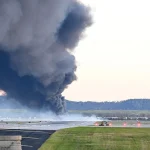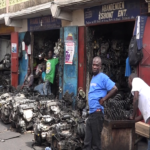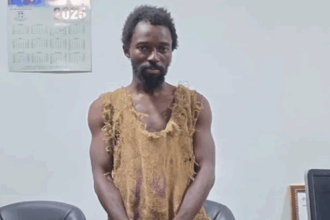Mr Jeremaine Nkrumah, Board Chairman, National Road Safety Authority (NRSA), has advised drivers to be measured in their alcohol intake during the Easter festivities.
He noted that drunk driving caused most of the crashes experienced during Easter, with drivers in the mood of ecstasy getting themselves drunk and endangering lives on the road.
Mr Nkrumah said this on Tuesday at the official launch of the Easter 2022 Road Safety Campaign in Accra.
The event was organised by the National Road Safety Authority (NRSA) to sensitise drivers and transport unions on the need to observe road safety regulations during the Easter festivities to reduce road crashes.
It was on the theme: “Stay Alive for Easter 2022”. He lauded drivers and staff of the NRSA for their immense efforts towards reducing the number of road crash cases recorded this year.
The Board Chairman advised drivers to minimize speed, overtake with due care when the need arose and break the drive to rest when tired.
Mr Hassan Tampuli, Deputy Minister of Transport said the loss of even one life through road crash, was a number too great, considering the adverse impact on society, the pain and agony, and the loss to the national economy.
He said historical data suggested a rise in the number of road traffic crashes and associated casualties during Easter seasons, therefore, appropriate steps needed to be taken to protect travellers against acts that would endanger life and property on roads.
Mr Tampuli expressed condolences to families of all persons who had lost their lives through road traffic crashes this year.
He said road users must change their behaviour and adopt safe road use practices, adding: “we cannot continue to watch on as our people perish on the road through no fault of theirs.”
The Deputy Minister urged passengers to always wear their seatbelts and speak up to advise drivers to change risky and unsafe behaviours.
Mr David Osafo Adonteng, Acting Director-General, NRSA, said most road crash incidents could have been prevented through carefulness on the road.
He said another factor that influenced road crashes during Easter included the hastiness of drivers to go on more trips to generate extra monies, leading to overspeeding and wrongful overtaking.
Mr Adonteng said the NRSA campaign team, aside from intensifying awareness on road safety had also been stationed at vantage points to educate motorists and help with the enforcement of road traffic regulations.
Superintendent Joseph Appiah, Acting Regional MTTD Commander, Accra, said the old ways of fighting road infractions were no longer proving to be effective, as such, it was important to devise new strategies to mitigate road crashes.
He said they would continue to deploy more personnel on various roads to ensure full compliance with road traffic regulations.
The event ended with the launch of the Road Safety Information Centre code “194” to allow road users to report road safety problems to the National Road Safety Authority.
Easter is the celebration of the resurrection of Jesus from the tomb on the third day after his crucifixion. It is the fulfilled prophecy of the Messiah who would be persecuted, die, and rise on the third day, according to Isaiah 53.
Easter follows a period of fasting called Lent, in which many churches set aside time for repentance and remembrance. Lent begins on Ash Wednesday and ends on Good Friday, the day of Jesus’ crucifixion. The 40-day period was established by Pope Gregory 1 using the 40- day pattern of Israel, Moses, Elijah, and Jesus’ time in the wilderness.
The week leading up to Easter is called The Holy Week, or “Passion Week”, and includes Palm Sunday (the day Jesus entered Jerusalem and was celebrated), Maundy Thursday (the “Last Supper” where Jesus met with his disciples to observe Passover), and Good Friday (when Jesus would be crucified on the cross).
















